| |
| |
| |
| Presented By Malwarebytes Business Solutions |
| |
| Axios World |
| By Dave Lawler ·Oct 04, 2021 |
| Welcome back to Axios World. - Tonight's edition (1,907 words, 7 minutes) starts in the air near Taiwan.
- New arrival? Subscribe
|
| |
| |
| 1 big thing: The "Taiwan question" |
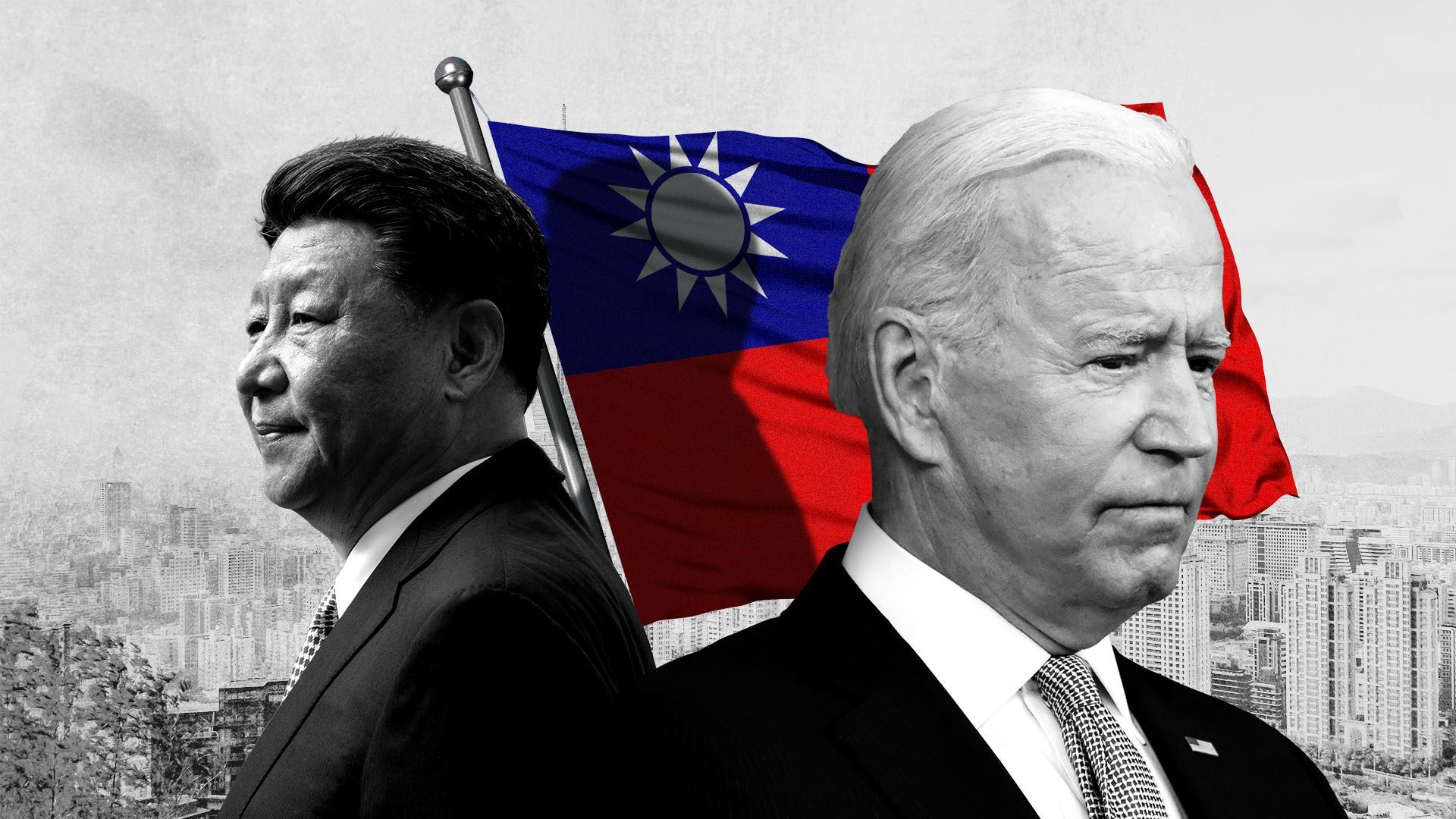 |
|
| Photo illustration: Sarah Grillo/Axios. Photos: Anna Moneymaker, Yorgos Karahalis/Bloomberg via Getty Images |
| |
| China has flown 145 fighter planes into Taiwan's air defense identification zone (ADIZ) over the past four days, including a record 52 today, escalating Beijing's campaign of intimidation toward the self-governing island and deepening fears of a devastating war, Axios' Zach Basu and I write. Why it matters: Beijing has been increasingly explicit about its willingness to bring Taiwan under its control by force. Most experts doubt any move to do so is imminent, but the "Taiwan question" is taking on newfound urgency in Washington: Should the U.S. stand aside if Beijing invades a key democratic partner, or should it wage war against a fellow superpower? What they're saying: Former national security adviser H.R. McMaster demurred today when I asked whether the Trump administration had been prepared to defend Taiwan militarily, instead making an argument in favor of "strategic ambiguity" — the policy under which successive administrations have avoided answering that question. - The policy deters Beijing, which must factor in potential U.S. intervention, while motivating Taiwan, which must be prepared to defend itself, he told a small group of reporters at the Hudson Institute.
- In the meantime, McMaster argued, the U.S., Taiwan and allies like Japan are in a race to strengthen the island's defenses such that Chinese leaders will find the costs of invasion unacceptably high, without doing anything unnecessarily provocative. Taiwan's mountainous geography, stormy seas and existing capabilities mean invasion is already "not an easy military problem," he noted.
- But McMaster thinks the issue could come to a head as early as 2022, as Xi seeks to extend his tenure and after Beijing hosts the Winter Olympics, noting that Vladimir Putin invaded Ukraine after hosting the 2014 games.
Driving the news: The aerial incursions came during the celebrations of China's National Day on Oct. 1, and they were likely intended in part to stoke national pride. Still, Taiwan's foreign minister said the island was preparing for war. - They also come amid Chinese anger over the new U.S.-U.K.-Australia security pact and naval drills in the Philippine Sea over the weekend involving the U.S. and five allies.
The big picture: In a speech earlier this year, Xi Jinping pledged "complete reunification" with Taiwan, which the mainland Communist government views as a breakaway province that must be brought to heel. - These are not idle threats: China has crushed Hong Kong's autonomy and fortified its military presence in the disputed South China Sea.
- The U.S. has strengthened its ties with Taiwan over the last several years and infuriated China by selling the island billions of dollars' worth of weapons.
- State of play: President Biden has tried to rally U.S. allies to curb China's influence, while assuring Beijing he has no desire for a new cold (or hot) war. He's walking a similar tightrope on Taiwan. The White House reiterated its strategic ambiguity policy in August after Biden had seemed to imply he was committed to defending the island.
What to watch: An invasion does not appear imminent, but the chances of a devastating miscalculation grow each time a Chinese fighter jet enters Taiwan's ADIZ, says Timothy Heath, senior international defense researcher at the RAND Corporation. |
    |
| |
| |
| 2. Pandora papers: How leaders are responding |
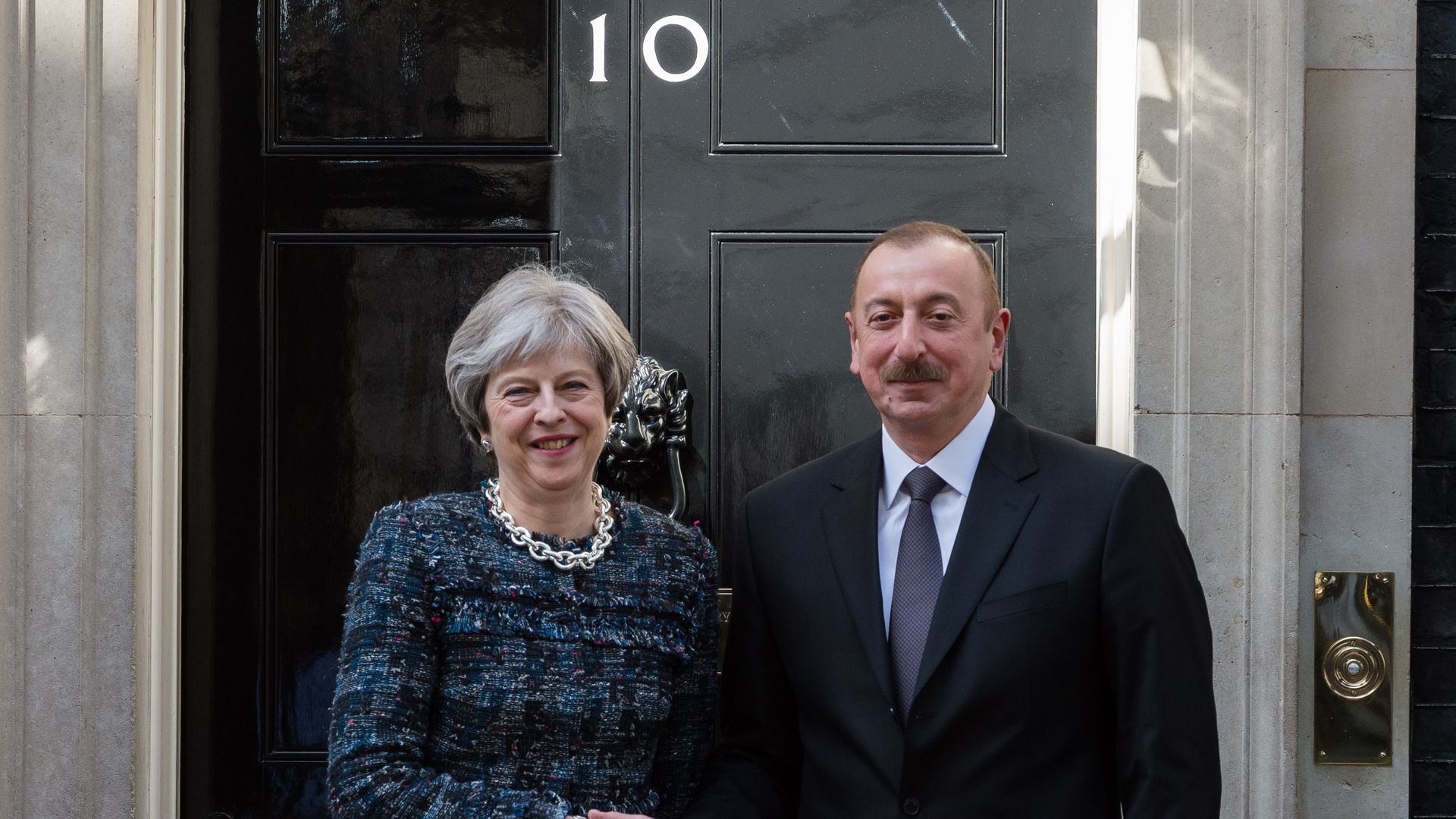 |
|
| "Is this place for sale?" Aliyev visits London in 2018. Photo: Wiktor Szymanowicz/Barcroft Media via Getty |
| |
| Here's a snapshot of some of the leaders implicated in the Pandora Papers — a massive leak of financial documents sifted through by an international consortium of journalists — and how they're responding. Russian President Vladimir Putin: A shell company purchased a $4.1 million apartment in Monte Carlo in 2003 for a woman named Svetlana Krivonogikh, who reportedly had an affair (and possibly a daughter) with Putin, per WaPo. - The latest: Putin's spokesperson said "we didn't see any hidden wealth of Putin's inner circle" in the reports.
Czech Prime Minister Andrej Babis, elected on promises to fight corruption, allegedly did not declare a home in the south of France purchased on his behalf by an offshore investment firm. - The latest: Babis denied wrongdoing and claimed the reports were an effort by unnamed people to influence the Czech elections.
Azerbaijani President Ilham Aliyev, his family and close associates were involved in property deals in the U.K. worth at least $540 million, per the reports. He has long faced accusations of looting his country. Jordan's King Abdullah II reportedly used offshore entities to buy at least 15 homes (including Malibu mansions) during his reign, together worth over $100 million. - The latest: His lawyers told the BBC he used his private wealth, and the palace said the holdings were "not unusual nor improper."
Kenyan President Uhuru Kenyatta's family owned at least 11 offshore companies with tens of millions of dollars in assets. - The latest: Kenyatta said the Pandora Papers would be good for transparency, and said he'd respond fully when he returned from a trip abroad. He had previously demanded that all civil servants account for their wealth.
Allies of Pakistani Prime Minister Imran Khan, including the finance minister, also were named in the reports. - The latest: Khan said he welcomed the reports and that they'd be investigated. He had railed against corrupt elites after a similar leak, the Panama Papers, in 2016.
What to watch: Dozens more current and former world leaders appeared in the documents. This story is far from over. |
    |
| |
| |
| 3. Global news roundup |
 |
|
| Rwandan President Paul Kagame dons military fatigues on a visit to Cabo Delgado. Photo: Imon Wohlfahrt/AFP via Getty |
| |
| 1. Philippine President Rodrigo Duterte isn't running for vice president after all. He may be clearing the way for his daughter to seek the presidency. 2. The former mayor of a small Italian town has been sentenced to 13 years in prison for charges including abetting illegal immigration. The mayor, Domenico Lucano, had been praised internationally for integrating hundreds of migrants into the community. 3. Algeria's government has accused its former colonial ruler France of "genocide" and recalled its ambassador to Paris over comments by French President Emmanuel Macron it described as "inadmissible," Axios' Yacob Reyes writes. 4. Rwandan troops have pushed insurgents out of Mozambique's besieged Cabo Delgado region in a matter of weeks after local forces had failed to do so, flexing the country's military might and willingness to use it beyond its borders, the FT reports. |
    |
| |
| |
| A message from Malwarebytes Business Solutions |
| Secure your business devices and data from cyberattacks today |
| |
 |
| |
| Malwarebytes Business Solutions' Back to Business Sale has been extended. There's never been a better time to level up your security stack with the top-rated, cloud-based solution. Get 25% off and try Endpoint Protection or Endpoint Detection and Response with 72-hour ransomware rollback. |
| |
| |
| Bonus: Where in the world |
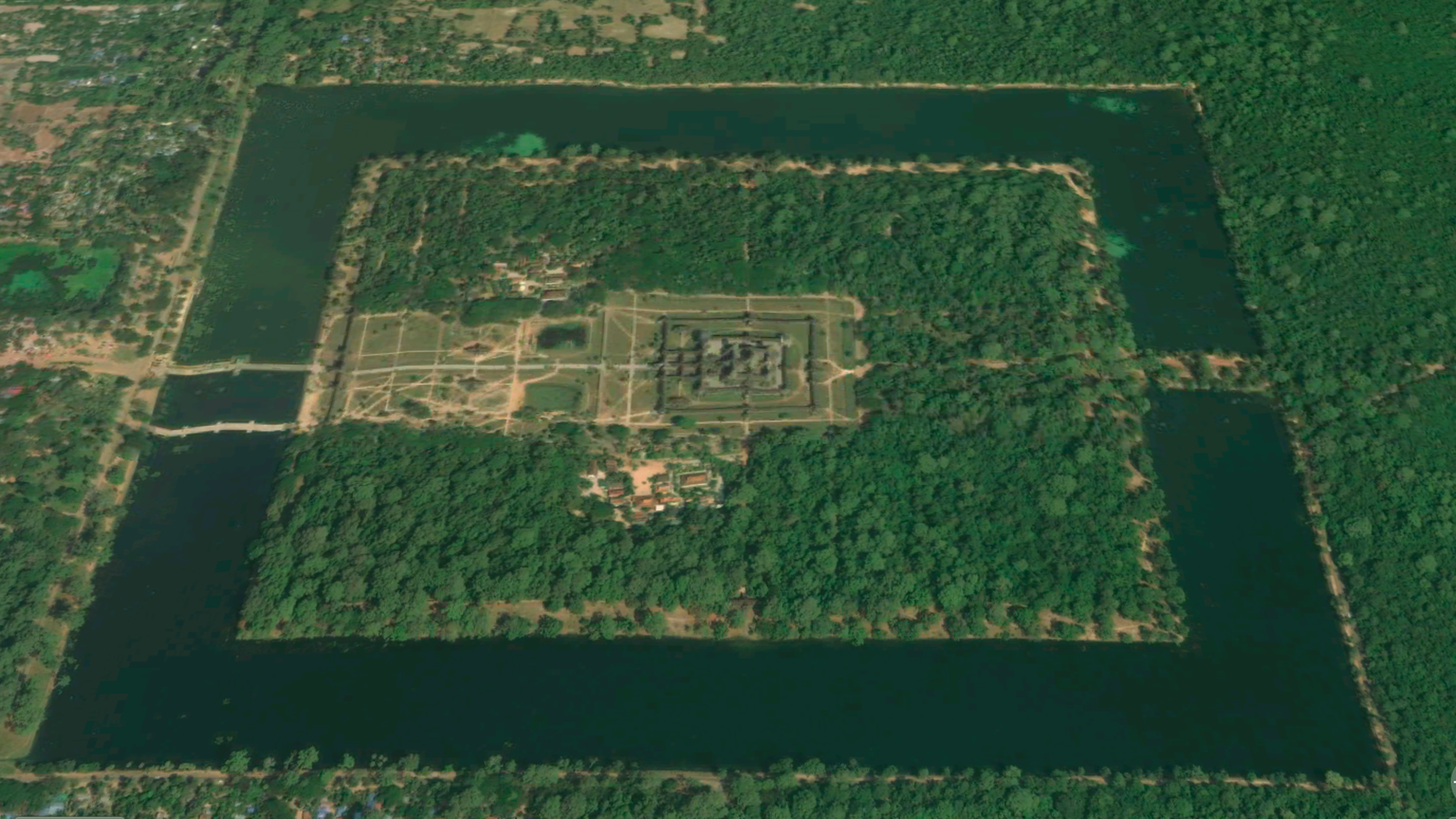 |
|
| Screengrab via Apple Maps |
| |
| Today we're visiting the world's largest religious structure and one of the most recognizable. It dates to the 12th century and features on a national flag. Scroll to the bottom for the answer. |
    |
| |
| |
| 4. Ex-president Saakashvili jailed in Georgia |
| Saakashvili under arrest. Photo: AFP/Georgia Interior Ministry Former Georgian President Mikheil Saakashvili remains in jail after returning to the country ahead of municipal elections on Sunday despite having been sentenced in absentia to six years in prison for alleged abuse of office. Driving the news: The U.S. State Department today urged Georgian authorities to "ensure that Mr. Saakashvili is afforded fair treatment." Georgian authorities, meanwhile, have been attempting to signal that international pressure will have no effect. - "No one on the planet can convince us to release Saakashvili," Prime Minister Irakli Garibashvili said, adding that "he better behave or we will bring against him fresh charges and others will join him."
- President Salome Zurabishvili said she would "never pardon" him.
The backstory: Saakashvili dominated Georgian politics from 2004 to 2013 and was praised for his political and economic reforms but criticized for his authoritarian tendencies. Once in exile, the larger-than-life figure established himself as a political player in Ukraine. - He has also been the leading antagonist of the ruling Georgian Dream party, which is steered from behind the scenes by oligarch Bidzina Ivanishvili and has overseen several years of democratic backsliding.
- Saakashvili's United National Movement party rejected the results of the elections, which were won by Georgian Dream, and international observers also expressed some concerns.
What to watch: This crisis could be too much for Georgia's crumbling democratic institutions to handle, Carl Bildt writes in the Washington Post. |
    |
| |
| |
| 5. The movement to stop Switzerland's F-35 deal |
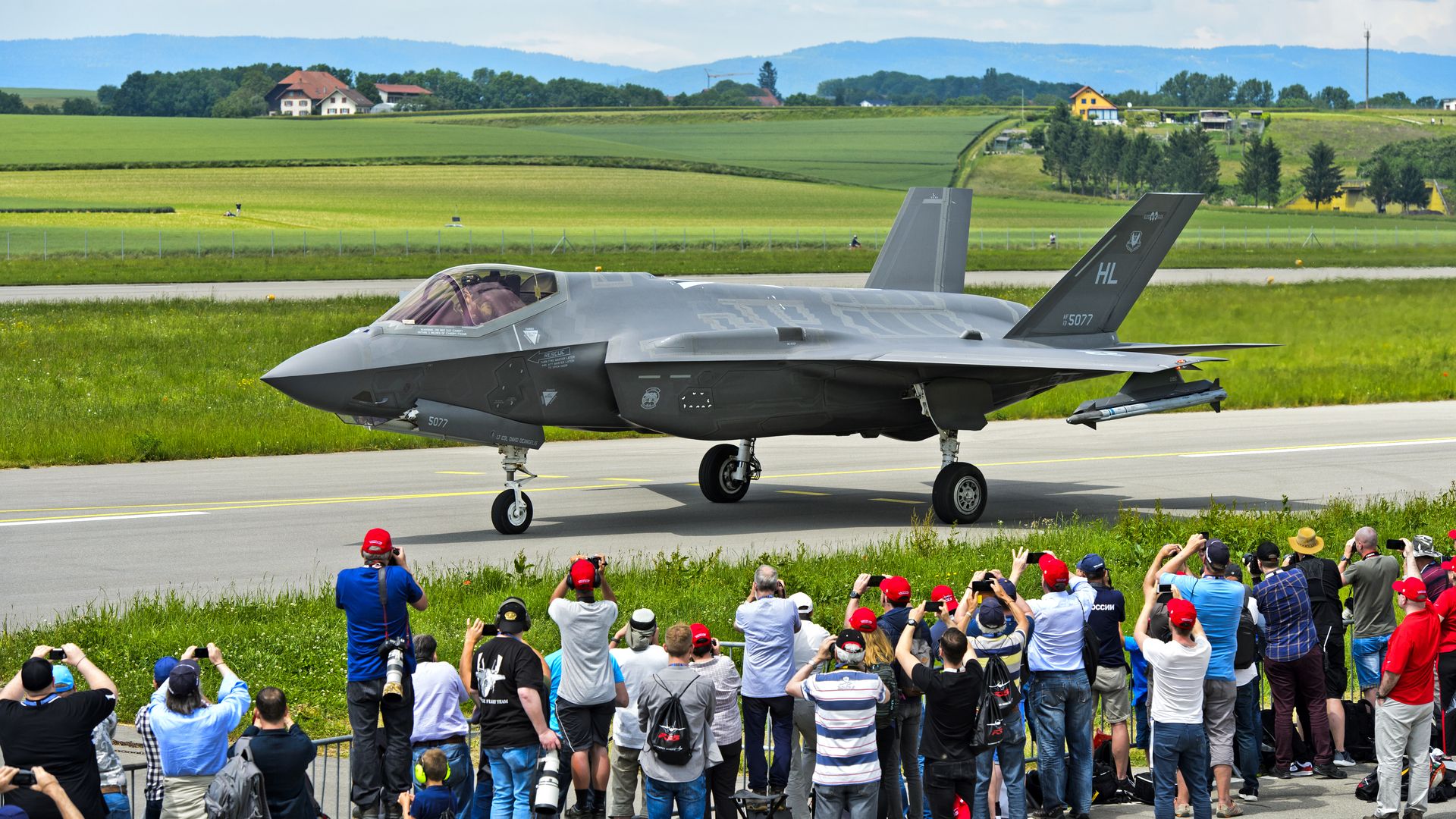 |
|
| An F-35 makes a stop in Switzerland during the procurement process. Photo: Gunter Fischer/Education Images/Universal Images Group via Getty |
| |
| Switzerland will soon become the 16th country to possess advanced F-35 jets — unless activists manage to thwart the $5.5 billion deal by forcing a referendum, Axios fellow Fabienne Kinzelmann writes. Why it matters: An activist group called "Schweiz ohne Armee" (GSoA) is teaming up with left-leaning political parties to campaign against the purchase, arguing that the jets are too expensive and threaten the concept of Swiss neutrality. One month into their campaign they've collected more than 25,000 signatures — one-quarter of the 100,000 needed for a referendum, with 17 months still to go. Flashback: A previous referendum on the government's plan to buy new stealth aircraft passed last September by a margin of 50.1% to 49.9%, making clear how divisive the issue is for Swiss voters. - At that point, four aircraft were in consideration. Then in June, Defense Minister Viola Amherd announced that the government had selected the F-35.
The other side: Jonas Kampus, a member of GSoA's secretariat, tells Axios that Switzerland has no need for "luxury fighter jets" — particularly those that mean U.S. intelligence would "always be in the cockpit," as GSoA claims on its website. - He says his group is on track to hit the signature threshold. Amherd also expects another referendum but argues that it's unnecessary: "The people have already said yes once, and now they are voting on the same thing again."
The big picture: Switzerland is known for its neutrality, but it maintains a military — including through compulsory military service — for its national defense and internal security. Defense spending hit a 25-year high in 2020 at 0.8% of GDP. |
    |
| |
| |
| 6. What I'm reading: "Broken Heartlands" |
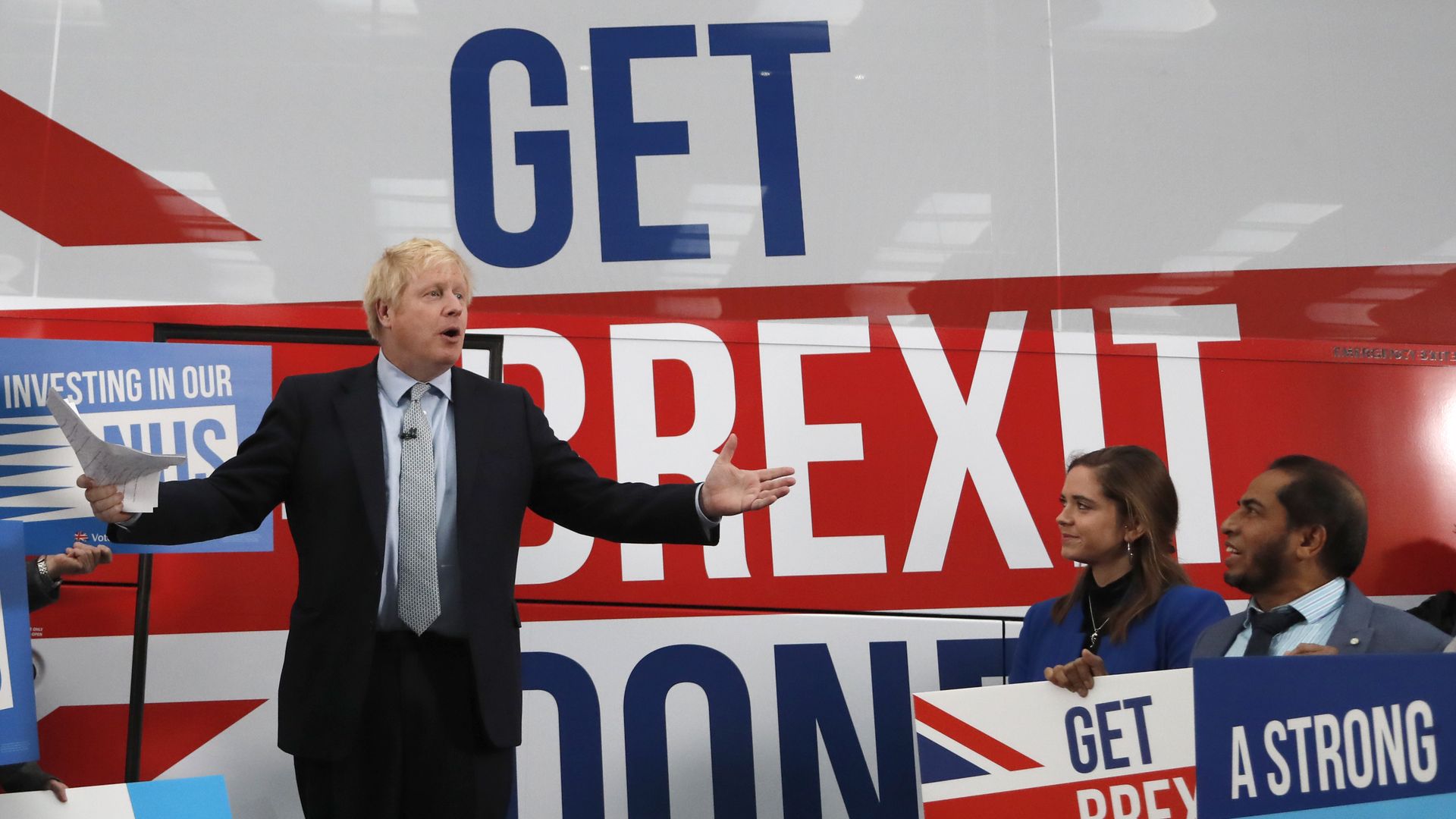 |
|
| Johnson on the stump in 2019. Photo: Frank Augstein-WPA Pool/Getty |
| |
| After Boris Johnson's Conservatives won a thumping "Get Brexit Done" majority in the U.K.'s Dec. 2019 election — breaking down Labour's "red wall" in the north of England — Sebastian Payne set off on a road trip. Payne, a political journalist for the FT and occasional contributor to this newsletter, aimed to determine why constituencies that had elected only Labour MP's for the better part of a century had shifted to the Tories. - The resulting book is a town-by-town examination of a region where the main industries — mining, factories or fishing — have gone and where links with Labour eroded throughout the party's post-Tony Blair identity crisis.
- The Brexit factor and then-Labour leader Jeremy Corbyn's historic unpopularity brought on the 2019 wave, but Payne still finds a stronger affinity for Johnsonian conservatism (big spending, optimistic, nationalistic) among those swing voters than anything Labour is currently offering.
- The book is less a post-election post-mortem than a real-time survey of political realignment, and it includes the perspectives of many of the major political figures of the past three decades.
My thought bubble: I went to the U.K. ahead of the election, discussed some of these issues with Payne over a pint, and wrote a piece comparing the red wall to the U.S. Rust Belt states that swung to Donald Trump in 2016. - That's a major simplification and one on which Payne doesn't dwell. This book is about the north of England and the U.K.'s political future.
|
    |
| |
| |
| 7. Stories we're watching |
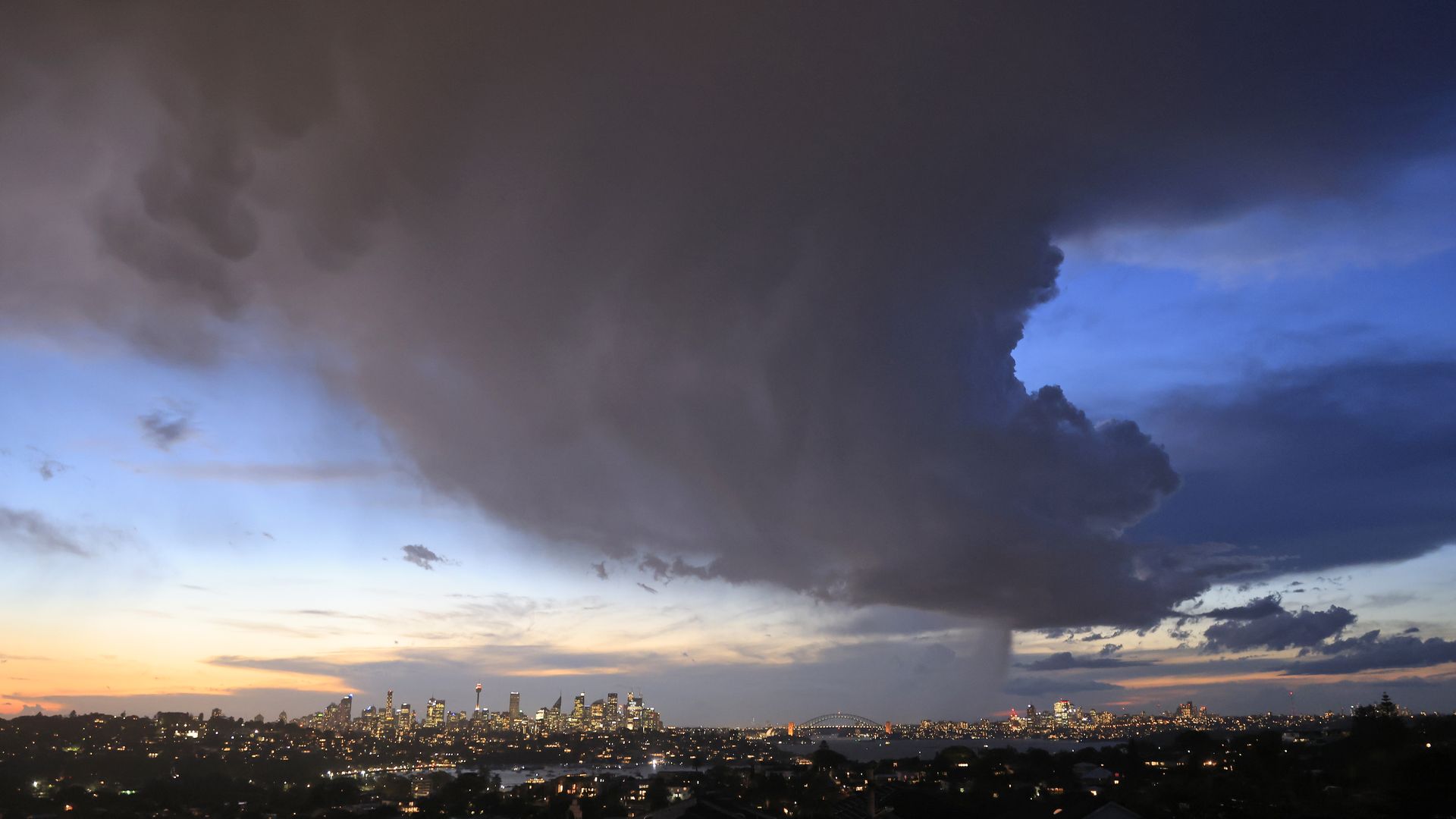 |
|
| Storm over Sydney. Photo: Mark Evans/Getty Images |
| |
- Fumio Kishida is Japan's new prime minister
- Mass protests in Brazil demand Bolsonaro's impeachment
- North Korea accuses UN of double standard over missile tests
- World Bank gives Nigeria $400 million for COVID vaccines
- Australia to lift travel ban for citizens after 1.5 years
- New Zealand phasing out COVID-19 elimination strategy
- EU drug regulator recommends Pfizer booster
Quoted: "If you talk about democracy — I probably will question it and laugh at it. You were engaged in building one in Afghanistan, and the people believed in it." — Afghan ambassador to the U.S. Adela Raz, asked by Axios' Jonathan Swan whether she sees America as the leader of the free world. More from the interview. |
    |
| |
| |
| A message from Malwarebytes Business Solutions |
| Secure your business devices and data from cyberattacks today |
| |
 |
| |
| Malwarebytes Business Solutions' Back to Business Sale has been extended. There's never been a better time to level up your security stack with the top-rated, cloud-based solution. Get 25% off and try Endpoint Protection or Endpoint Detection and Response with 72-hour ransomware rollback. |
| |
| Answer: Angkor Wat. |
 | | It'll help you deliver employee communications more effectively. | | |








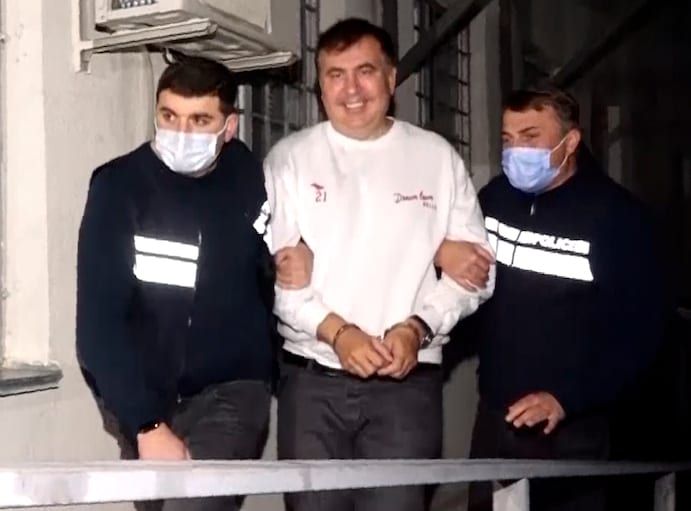




No comments:
Post a Comment